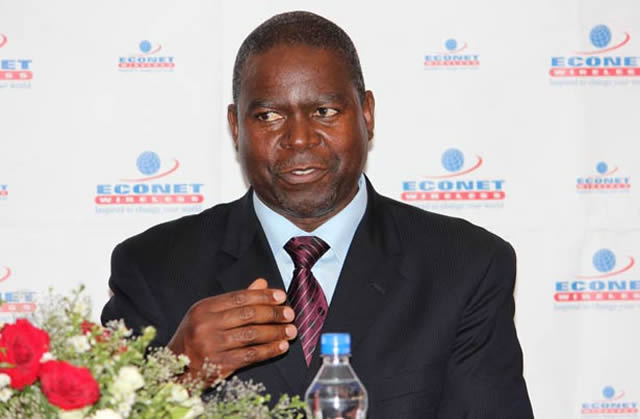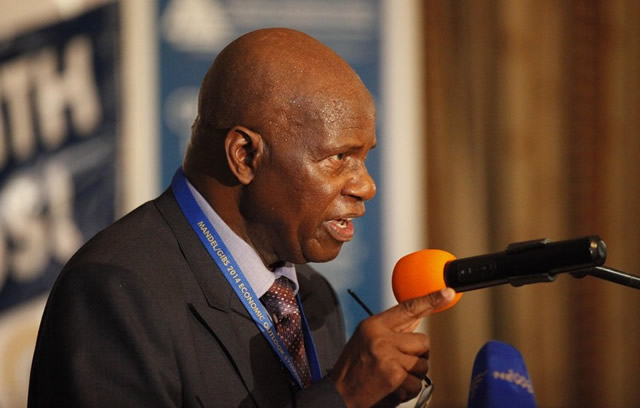Journalists, analysts are not zombies!

My Two Cents
Last week on May 3, the media fraternity observed World Press Freedom Day. The day marks the importance of freedom of the Press and reminds all of their duty to respect and uphold the right to freedom of expression. Generally in Zimbabwe, the two laws AIPPA and POSA dominate conversations when marking this United Nations-set day.
Often times we tend to ignore how journalists are abused not with issues to do with the law but with issues they encounter when they are chasing after simple stories. This week, business and financial journalists witnessed some kind of abuse, which amounts to media manipulation from Econet Wireless Zimbabwe.
Perhaps for the record, it is important to note that I do not have a personal agenda against Econet. Relations have been friendly with the Econet team over the past couple of years that I have been in the market.
That being said, Econet this week held its results briefing for the year to February. Over the past few years, the group usually held two briefings; for analysts and for the media. Never mind that both analysts and journalists complement each other. One cannot do without the other. I am not so sure if the presentations would be any different.
I have never attended the media briefing but from what I hear, the presentations are no different. This year however, they chose to communicate to the media that they were not wanted at the event. “Regrettably Cdes, this briefing will not be open to the press. But I will be sending out the results just before it starts” was the message which came from the PR department.
Well, there is nothing wrong with this. They can invite whom they want to an event. In fact, there is a time at my old job when we were banned from Econet events because of a series of unfriendly articles. It however, becomes an issue when, after making it clear you do not want the press at the event, you then send press releases to suit your taste.
That is tantamount to MEDIA MANIPULATION and abuse. The first press release was titled Econet pays a dividend, a typical PR statement which avoided by all means to say the results showed a decline in profitability. The second press release which was then largely boycotted by most media houses was on Steward Bank.
“Steward Bank, the wholly-owned subsidiary of Econet Wireless Zimbabwe, posted a loss of $26,3 million as the company continues restructuring away from traditional banking to focus on services related to mobile banking.
Econet Wireless CEO, Mr Douglas Mboweni, said he was confident that the bank would soon turn to profitability. He said the bank had played a critical role in the development and management of EcoCash, which is now processing more than $350 million in transactions a month?
“In terms of our strategy, the revenue model of Steward Bank was always going to be pinned on EcoCashSave and EcoCashLoan. We first of all had to get the money transfer services up and running before launching these other services. We have now launched these services in the last few months. By this time next year, you will see a very different Steward Bank.”? Mr Mboweni said more than 1,5 million customers have opened bank accounts with Steward Bank using EcoCashSave. Some of the account holders were Zimbabweans in the Diaspora, who saw it as a convenient way to support their families at home?
The Econet Wireless CEO articulated that the business strategy of the Bank was unique and relied on innovation and technology and therefore did not require the level of staff that is ordinarily required by a traditional bank.
“It was not an easy decision, and we really agonised over this issue, but we realised that the bank would not be able to grow unless we restructured it to operate an innovation-led model. If the economy had been performing better, we may have been able to sustain some of these marginal branches, but it has not happened. It is something we regret, and we will try our best to create new jobs in other areas as we have always done.”?
In terms of capital, Mr Mboweni said Steward Bank was in the top five most capitalised banks in the country and would receive more capital as required from Econet to allow the bank to develop more mass-market banking products.
And then an invite came: Good day colleague,
“You are invited to a trip to Nhowe Mission, where Econet Wireless is launching the ground-breaking Energise-the-Chain initiative. This is an award-winning project under which Econet is providing support to public health institutions across the country through the harnessing of excess energy from its base stations.
The Minister of Health and Child Care Minister, Dr David Parirenyatwa, will officially launch the project. Also in attendance will be the Minister of Provincial Affairs for Mash East, Hon. Simbaneuta, and Chief Mangwende. Transport will be available from Harare, leaving the Econet offices at Livingstone Avenue at 7AM. The event begins at 10AM and ends at 1230PM. We will return thereafter. Please do let me know should you wish to travel with us.”
Based on the above, one would not be blamed for thinking that the company is directing the media to report ‘their feel-good-information’ which is not objective, information that is more self-pleasing than anything else. But hang on…. the media is not an extension of the PR department neither is it there to give meaning to your social responsibility programmes!
Its job is to report objectively as the eye of the investor and the public in general. It should not be used selfishly and for PR campaigns. Never mind the fact that once in a while journalists are treated to free tablets, dongles and airtime.
The media should be treated with respect; journalists are not zombies, always ready to serve the master. This is why the FinX comment said “Econet now wants us to believe that they are too much of a behemoth. Rather than enhancing the business model and working on its cost controls, the company is at the present mostly focused on PR campaigns.”
“Econet’s total costs rose by 11 percent to $436 million with the costs reflective of investment in new revenue streams. “We will be focusing on a cost rationalisation exercise with particular emphasis on network and IT cost optimisation, hybrid power systems to reduce fuel costs, supply chain management and centralised procurement as well as marketing and distribution costs,” chief financial office Roy Chimanikire said.
These are the areas that Econet has failed in, which are costing the company millions of dollars. The financial leakages have to be plugged as soon as possible. This may call for the irrelevant technical skills to be sent packing. When you compare with Telecel you can tell the technical teams are different with the Econet team lagging behind in terms of innovation and knowing the right technology to put up for their network and managing their cost of power.
For example: Econet uses 3kw/hr to 6kw/hr and where there is air conditioning they use an additional 5kw/hr. Telecel, their major competitor is using 2kw/hr across the network. The Econet network is inefficient when it comes to power management. Analysts and journalists have a right to dig these things out of the financials and ask questions.
However, even at that briefing, management as always still dodged a lot of questions, choosing to answer what was comfortable for them. They did not answer the question on why the interest cost has gone up and yet long term loans had gone down.
“Does this imply that your short term borrowings have gone up seeing you reported current liabilities as one figure” Instead the answer to that question was that it will be adequately covered in the annual report under accounting notes. Like seriously?
They also failed to answer on Ecocash profit contribution, specifics relating to losses made by its other segments on segment analysis with particular reference to Steward Bank. They were also asked about their revenue growth projections and also failed to answer the issue on the targeted contribution of overlay services to profitability in the future.
The company at the briefing purposely leaves out the breakdown of profits per unit and instead gave revenue contributions, which really limit overall analysis of the individual SBUs. As investors and analysts there is need to know not only the revenue contribution of the different SBUs but it is critical for any analysis to know also the level of profitability, and how much each unit contributes to group profits. Why? Because overtime we know that revenues for data and voice (which is the core business) will start to decline, as competition tends to catch up and penetration rates increases. Investors and analysts need to know where the future profits of the group will likely come from, which in a nutshell is business growth. Will Econet still be making such level of profits say 15 years from now?
It is unfortunate, the media was never included as a stakeholder in the drafting of the Zimbabwe Stock Exchange Listing Rules because there should have been a clause which compels companies who make public appearance or hold a meeting to have a press gallery.
This is a standard in most developed nations. The problem is most company executives believe journalists do not know the rules and that they just come for snacks. The media the world over is now being recognised as an important stakeholder in the affairs of any country as only they can shape and drive policy. The same should start happening in this country!
For feedback and comments write to [email protected]











Comments